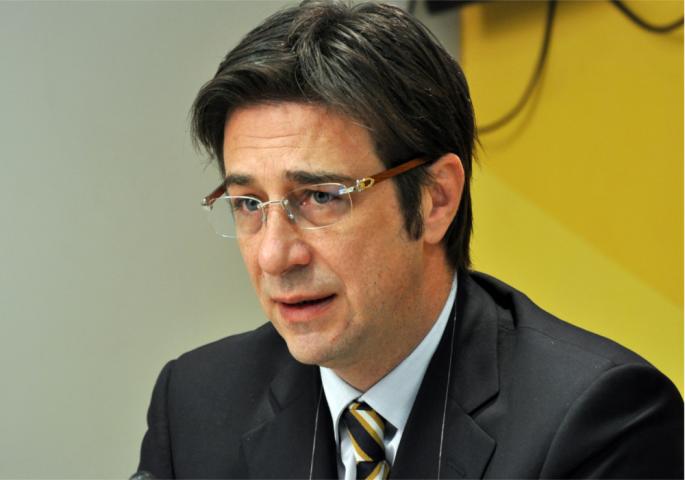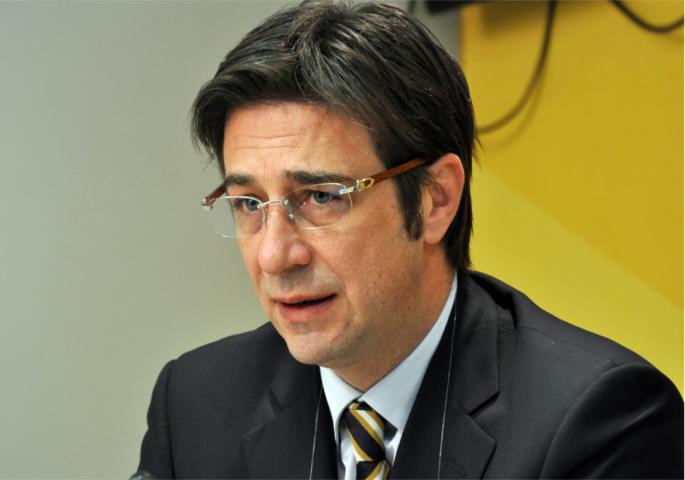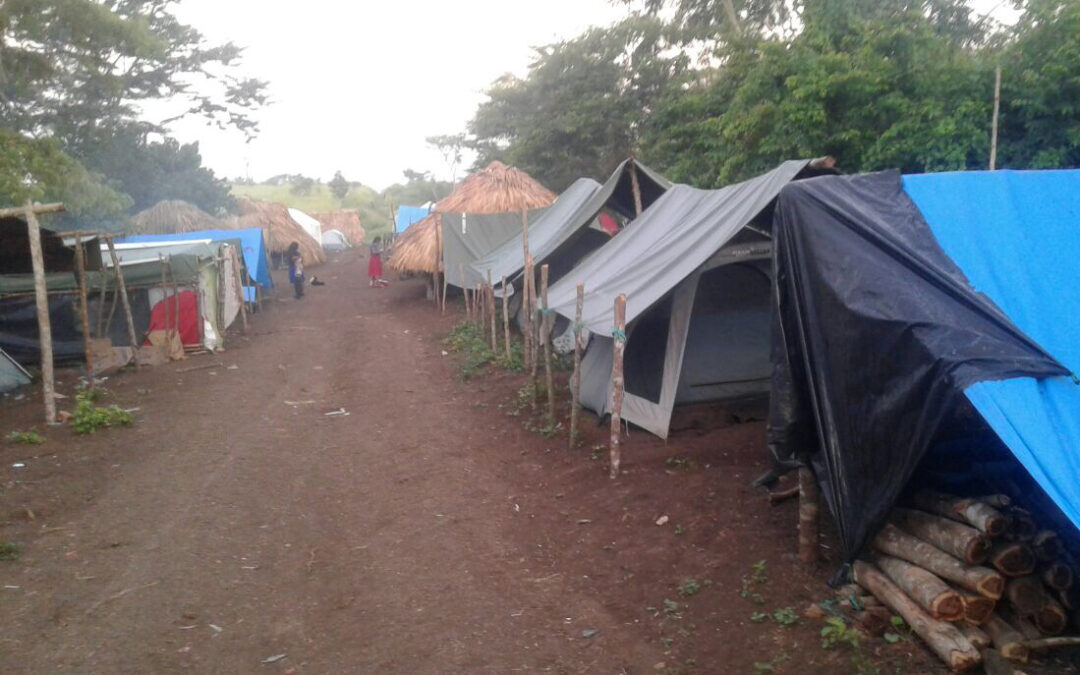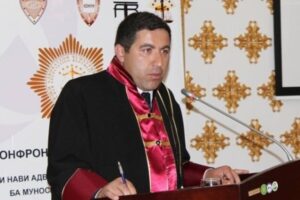
Jul 30, 2018 | News
The killing of Serbian defense lawyer Dragoslav Ognjanović must be independently, promptly, and thoroughly investigated and the perpetrators brought to justice, the ICJ said today.
Dragoslav Ognjanović (photo), a prominent lawyer who had defended Slobodan Milosovic and had also represented defendants in cases of organized crime, was shot dead outside his home in Belgrade late on Saturday 28 July.
“Safety of lawyers is essential to the fair operation of the justice system and to protection of the rule of law. The Serbian authorities now need to take urgent steps to re-establish confidence that they can ensure the safety of lawyers who may be under threat, and to investigate and bring to justice the perpetrators of this crime,” said Justice Radmila Dragicevic-Dicic, of Serbia’s Supreme Court, Vice-President of the ICJ.
“Investigation and prosecution of this case will be a significant test for the Serbian authorities and the legal system,” she added.
The Serbian and Belgrade bar associations have called a week-long suspension of work by lawyers in order to express their concern at the risk of violence against lawyers.
Serbian authorities have blamed an ongoing turf war between organized crime groups competing to control the narcotics trade.
“The concerns of the Serbian legal profession should be taken seriously by the government and the prosecution service, and the bar associations should be consulted on means to ensure the safety of lawyers,” said Róisín Pillay, Director of ICJ’s Europe Programme.
Additional information
International human rights law, including the European Convention on Human Rights to which Serbia is a party, requires that states take steps to protect the life and physical integrity of persons who they know or ought to know are at real risk of violence.
In addition, the right to life, protected under Article 2 of the European Convention as well as under other international law standards, requires states to ensure an independent, prompt and effective investigation into killings, with a view to bringing to justice those responsible.
According to the UN Basic Principles on the Role of Lawyers, governments must ensure that lawyers are able to perform all of their professional functions without intimidation, hindrance, harassment or improper interference (principle 16). The UN Basic Principles specify that “[w]here the security of lawyers is threatened as a result of discharging their functions, they shall be adequately safeguarded by the authorities” (principle 17).

Jul 30, 2018 | News
On 25 July 2018, the ICJ facilitated an integrated meeting of governmental stakeholders in the justice chain involved in different aspects of combatting sexual and gender-based violence (SGBV) in the Kingdom of Eswatini (Swaziland), the first meeting of its kind.
The meeting was convened by ICJ Commissioner and Principal Judge of the High Court of Eswatini, Justice Q. M. Mabuza. It followed a meeting held in February 2018 on combating SGBV in Eswatini and an ICJ report on key challenges to achieving justice for gross human rights violations in Eswatini, the latter of which recommended that justice sector stakeholders involved in the investigation, prosecution and sanctioning of, and provision of redress to victims for, acts of SGBV should convene six-monthly meetings so as to develop a common and integrated approach to the effective combating of SGBV.
The integrated meeting involved senior officials from the Office of the Deputy Prime Minister, the Office of the Attorney General, the Office of the Director of Public Prosecutions, the police, correctional services, and the judiciary.
The meeting discussed the fight against SGBV in the context of the Guidelines on Combating Sexual Violence and its Consequences in Africa, and other international standards. It considered the national legal and policy framework on SGBV; practices and challenges in the investigation and prosecution of SGBV; the sanctioning of SGBV offences; and the rehabilitation of sexual and domestic violence offenders by correctional services. Perspectives of the Office of the Deputy Prime Minister, the police and the judiciary were emphasized during discussions.
Stakeholders discussed issues with a view to identifying gaps and challenges in national law, policy and practice when measured against regional and global standards and best practices, as well as with a view to considering potential solutions to those gaps and challenges. The meeting agreed on next steps, including on concrete action that aligns with and/or augments the National Strategy to End Violence. Stakeholders agreed that they should all be involved in the early stages of cases involving SGBV.
Stakeholders also agreed that the recently enacted Sexual Offences and Domestic Violence Act will only be effectively implemented if justice sector stakeholders are well coordinated. Stakeholders agreed that integrated meetings should be held regularly, at intervals of no less than six months including, if possible, before the end of 2018.

Jul 30, 2018 | Новости, Статьи
Убийство сербского адвоката Драгослава Огняновича должно быть незамедлительно и тщательно расследовано, а виновные привлечены к ответственности, заявила сегодня МКЮ.
Драгослав Огнянович (фото), известный адвокат, который защищал Слободана Милосовича и также представлял обвиняемых в делах организованной преступности, был застрелен перед его домом в Белграде вечером в субботу 28 июля.
«Безопасность адвокатов имеет очень важное значение для справедливого функционирования системы правосудия и защиты законности. Теперь сербским властям необходимо принять срочные меры для восстановления уверенности в том, что они могут обеспечить безопасность адвокатов, которые могут находиться под угрозой, а также расследовать и привлекать к ответственности лиц, виновных в этом преступлении », – заявила судья Радмила Драгичевич-Дичик из Верховного суда Сербии, вице-президент МКЮ.
«Расследование и судебное разбирательство этого дела станут серьезным испытанием для сербских властей и правовой системы», – добавила она.
Ассоциации адвокатов Сербии и Белграда обьявили недельную приостановку работы юристов, чтобы выразить свою обеспокоенность в связи с риском насилия в отношении адвокатов.
Сербские власти обвиняют продолжающуюся борьбу за влияние между организованными преступными группами, конкурирующими за контроль над торговлей наркотиками.
«Проблемы сербской юридической профессии должны восприниматься серьезно со стороны правительства и прокуратуры, и с адвокатами следует консультироваться по средствам обеспечения безопасности адвокатов», – сказала Роушин Пиллэй, директор Европейской программы МКЮ.
Дополнительная информация
Международное право прав человека, включая Европейскую конвенцию о правах человека, участником которой является Сербия, требует, чтобы государства предпринимали меры для защиты жизни и физической неприкосновенности лиц, которых они знают или должны знать, подвергаются реальной опасности насилия.
Кроме того, право на жизнь, защищенное в соответствии со статьей 2 Европейской конвенции, а также в соответствии с другими нормами международного права, требует от государств обеспечить независимое, быстрое и эффективное расследование убийств с целью привлечения к ответственности виновных.
Согласно Основным принципам ООН роли юристов, правительства должны обеспечить, чтобы юристы могли выполнять все свои профессиональные функции без запугивания, препятствий, преследований или ненадлежащего вмешательства (принцип 16). В Основных принципах ООН указывается, что «там, где безопасность адвокатов находется под угрозой в результате выполнения их функций, они должны быть надлежащим образом защищены властями» (принцип 17).

Jul 27, 2018 | News
On 25 July, the ICJ visited the displaced persons of the Laguna Larga community, who were forcibly evicted from their homes over a year ago.
These displaced persons are now living in makeshift tents in infra-human conditions in the El Desengaño community, municipality of Candelaria, State of Campeche on the frontier between Guatemala and Mexico.
Their health and well-being are at serious risk.
On 8 September 2017, the Inter-American Commission on Human Rights (IACHR) granted precautionary measures in favour of the evicted and displaced community of Laguna Larga (Resolution 36/2017 Precautionary Measures No 412-17), calling on the Guatemalan authorities to adopt the “necessary measures to protect the rights to life and to personal integrity of the beneficiaries, through measures designed to improve, among other aspects, their sanitary and health conditions, in particular of children, women and the elderly”.
To date, the Guatemalan authorities have taken no action to implement the precautionary measures.
The ICJ was able to observe that the only measure adopted by the Guatemalan State has been to provide the displaced community with two teachers to give classes to the children.
However, the ICJ could also observe that the educational installations are precarious, too hot and very dark, which makes it difficult to give classes.
No sanitary nor health services have been provided by the Guatemalan authorities. On 24 July, a child died only 30 hours after her birth, seemingly a consequence of lack of medical attention.
Neither have other precautionary measures concerning food, access to water and housing been implemented.
The ICJ is deeply concerned that the Guatemalan State has not fulfilled the requirements of the IACHR and that after a year, the rights to life and personal integrity of the displaced community of Laguna Larga is at risk of irreparable harm.
In the face of the inaction of the Guatemalan authorities, members of the Laguna Larga community with the support of Mexican and Guatemalan organizations have managed to implement various projects to provide drinking water, electricity, food and health services.
However, despite these important efforts, this humanitarian support remains insufficient given the serious crisis.
While the efforts of the Laguna Larga community and Mexican and Guatemala non-governmental organizations have been an example of civil society organization, it in no way exonerates, substitutes or reduces the responsibility of the Guatemalan State to guarantee the rights to life and personal integrity of the displaced population and to implement the precautionary measures ordered by the IACHR.
Ramon Cadena, Director of ICJ’s Central American Office, said:
“Given this situation, the ICJ urges the Guatemalan authorities immediately to fulfil the Inter-American Commission on Human Rights’ precautionary measures 412-17 and to resume the dialogue that was started before the eviction. According to international standards, the State should provide reparations for all the harm and prejudice caused.”

Jul 27, 2018 | News
On 26 July 2018, the ICJ Secretary General, Sam Zarifi, met Myanmar’s Union Attorney General, U Tun Tun Oo.
The ICJ Legal Adviser Sean Bain and senior staff from the Union Attorney General’s Office (UAGO) joined the meeting in Nay Pyi Taw.
Rule of law developments in Myanmar were discussed, including progress integrating international standards into the work of the UAGO, such as the new “Code of Ethics for Law Officers”.
The participation of UAGO staff in the ICJ’s recent workshops on the Minnesota Protocol on the Investigation of Potentially Unlawful Deaths was another topic discussed.
Noting the UAGO’s stated reform commitments, Sam Zarifi renewed the ICJ’s call on Myanmar’s prosecution authorities to drop the charges against Wa Lone and Kyaw Soe Oo, two Reuters journalists, which do not appear to have a valid legal rationale.
Efforts to effectively prosecute the assassination of lawyer U Ko Ni were also discussed.
Sean Bain noted the UAGO’s efforts to draft an umbrella land law according to the government’s National Land Use Policy, and highlighted the importance of public participation and consultation in this process, to ensure compliance with Myanmar’s obligations under the International Covenant on Economic, Social and Cultural Rights.
The Attorney General thanked the ICJ for the organization’s ongoing honest advice and support for human rights.
The ICJ has worked with the UAGO since 2014 to provide assistance on prosecutorial independence and human rights in the context of Myanmar’s broader democratic reforms.








